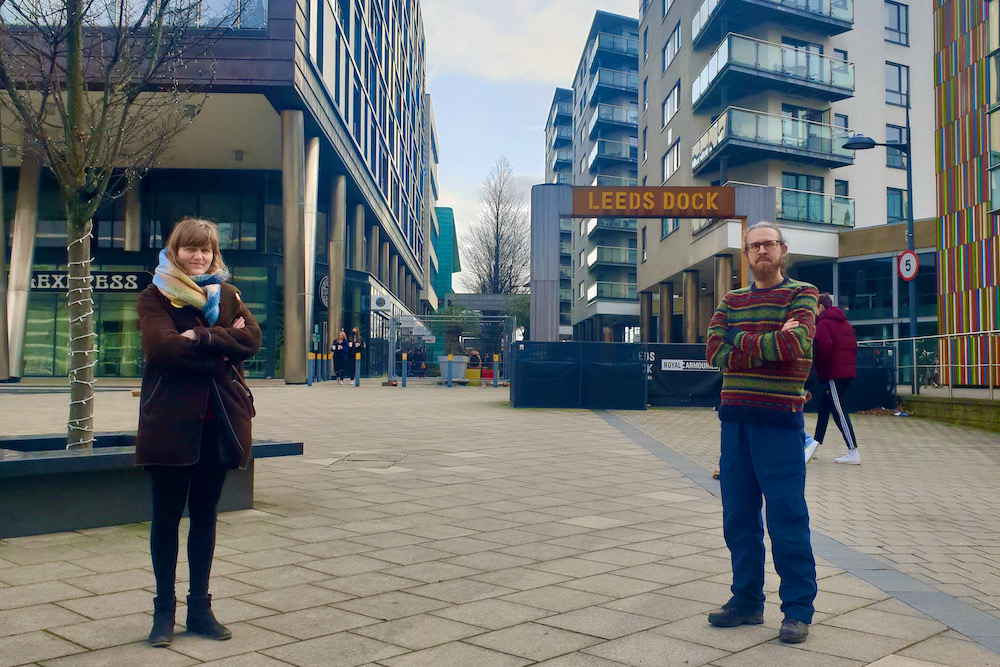
Following on from our report yesterday on the ongoing Cladding Crisis, we spoke to affected residents. Here they are in their own words:
Mo:
“I bought my flat in 2019, and the survey showed nothing up. Literally weeks later, defects were discovered, the waking watch started, and we’ve since been hit with more and more levies, and very substantial increases in insurance and service charges. It’s taken a huge toll on my mental health – especially the uncertainty.
“The government – instead of stepping in to hold an industry to account – has abandoned a position of social justice. They’re treating us as stakeholders, alongside the industry that’s done this to us – but in reality, we’ve been wronged, we’re victims. They cut corners, took laxities, then took steps like winding down their companies to absolve themselves, to ensure there is no accountability.
“The government funding doesn’t go nearly far enough: it’s a gesture to placate, to take the sting out of the public discontent, rather than genuinely addressing it. Many people have already had their financial resilience broken by interim costs, and now they’re being pushed into debt, and left on the road to ruin. The people making the decisions just don’t get that.”
Viraj:
“We realised that our block was affected last year, and the service charges and insurance have kept up going up and up since: they’ve now doubled. And the management company is just not transparent. They make big demands of us, but then you can’t get hold of them, and they suppress information from us: they’re more interested in the big freeholders. We leaseholders are too distributed, not united enough – and it feels like we’re being taken for a ride. It’s been a nightmare, really stressful, and it’s really affected me and my family.”
Phil:
“I was delighted to be able to buy my flat two years ago, but it now feels like I made a terrible decision. I got a fire safety report during the purchase, but it’s now clear that substantial work is needed to replace unsafe materials and insert fire breaks. The BSF is currently unlikely to cover all that, so we’re facing ruinous costs – estimated at over £40,000 per leaseholder. The Covid pandemic have really put a strain on my mental health, and now – through no fault of my own – I feel trapped in an unsafe building, and facing the threat of potential bankruptcy, and even losing my home. It’s completely overwhelming.”
Pippa:
“I bought my property in January 2019, but was very cautious about known cladding issues, and checked with both the council and West Yorkshire Fire Service that the building was safe. Then last summer, the issues came out: cladding, and much more. My service charge has since increased from £240/month to £630/month. Estimates for building work here are £8m: an average of £43,000 per leaseholder, but nearer to £70,000 for me.
“The BFS fails to provide the full promised solution, and indicates there’s still a failure to grasp the full scale of the crisis. Until funding is gained to cover all defects (not just cladding), many buildings will simply be left unsafe, as people cannot afford to pay. And the proposals fail leaseholders in buildings under 18m: forcing loans on these properties is despicable, and will force many into negative equity. Their other funds like the Waking Watch Relief Fund is wholly insufficient too.
“The government are attempting to divide the leaseholders from the general taxpayer. We agree that no taxpayers should pay: there needs to be a fairer levy on developers, to raise the required £15bn. Those responsible for the crisis should pay to remedy it.
“What last week’s announcement does is show the construction industry they will not be punished if they do wrong. It gives developers and manufacturers the go-ahead to continue to build on the cheap, cut corners where possible, and continue to build dangerous homes. Doling out grants and loans, and failing to acknowledge there is systemic failure will mean that this crisis will happen again.”


